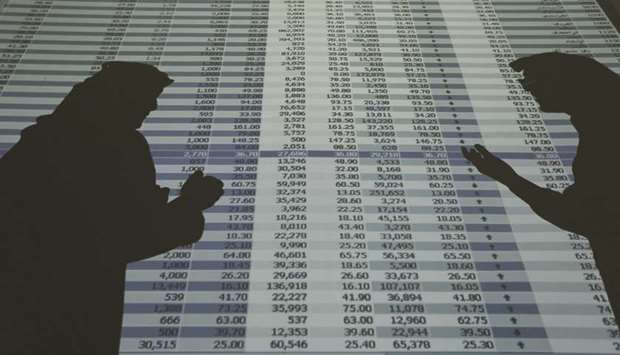While billions of dollars will flow into Saudi Arabia with its inclusion in MSCI Inc’s emerging-market benchmark in June, don’t count on the passive money to revive the market’s fortunes, says Eaton Vance Corp.
Government-related funds, which appeared to have propped up Saudi equities following the murder of columnist Jamal Khashoggi in October, will probably become sellers next year to investors tracking the MSCI index – in classic buy-low, sell-high style, according to the Boston-based money manager.
“We would expect a dumb-money passive bid to purchase Saudi equities, regardless of their valuation, which, I might add, is not particularly cheap,” said Marshall Stocker, a Boston-based portfolio manager at Eaton Vance, which oversees about $439bn. “I do not think the Saudi stock market will trade up upon inclusion. Instead, the Saudi state may prove ingenious in selling their holdings to index funds.”
The Arab world’s biggest stock market is getting more expensive relative to developing-nation equities, with the gap in their estimated price-to-earnings ratios near the widest since 2015.
Foreign-investor confidence has been frayed since June 2017, when the Saudis led a campaign to isolate Qatar, followed by what authorities described as an anti-corruption crackdown in November that saw billionaires imprisoned in the Ritz-Carlton in Riyadh. Khashoggi’s murder in the Saudi consulate in Istanbul in early October was the latest in a list of shocks that spurred outflows.
Cairo-based EFG-Hermes Holding Co expects Saudi inclusion in emerging-market benchmarks by both MSCI and FTSE Russell to draw as much as $22bn from active money managers, on top of about $16bn in passive inflows. That’s assuming total foreign ownership in the Saudi market will climb to the average seen in the UAE and Qatar, which are already in the emerging-markets category, said Dubai-based strategist Mohamad al-Hajj.
Foreign investors dumped Saudi stocks for seven straight weeks after the killing and has resumed their selling. Local institutional investors snapped up more than $4bn in shares in just two weeks.

The shadows of investors are seen cast on a screen as they monitor stock prices at an investment bank in Riyadh (file). Foreign investors dumped Saudi stocks for seven straight weeks after the killing of columnist Jamal Khashoggi in October.
